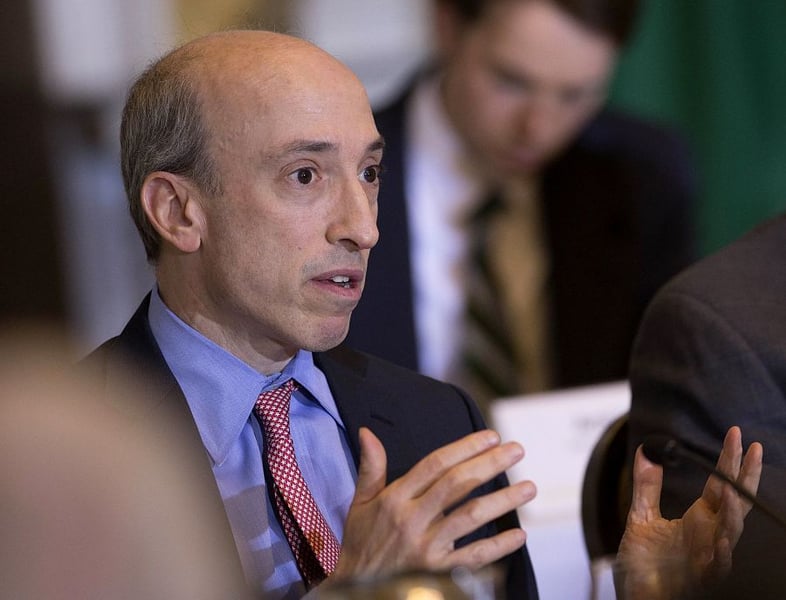

The Securities and Exchange Commission is considering more stringent disclosure requirements for investment funds amid concerns that some in the industry are making unfounded ESG claims.
“Many funds these days brand themselves as ‘green,‘ ‘sustainable,‘ ‘low-carbon,’ and so on,” SEC Chairman Gary Gensler said Wednesday, according to the text of a speech he delivered to the European Parliament Committee on Economic and Monetary Affairs. “I’ve directed staff to review current practices and consider recommendations about whether fund managers should disclose the criteria and underlying data they use to market themselves as such.”
The comments mark the latest warning to the asset management industry to avoid inflated language around its environmental, social and governance allocations.
Last week, investors dumped shares of Deutsche Bank’s asset manager DWS Group, after learning it was being probed by Germany’s financial markets regulator BaFin and U.S. prosecutors. The investigations follow allegations by DWS’s former sustainability executive, Desiree Fixler, who says the firm overstated its ESG assets. DWS says it did nothing wrong.
The development has rattled an industry that’s struggling to adapt to a much stricter regulatory environment. In Europe, the Sustainable Finance Disclosure Regulation, enforced in March, is the world’s most ambitious set of rules yet intended to fight greenwashing and promises to dramatically alter the way the investment management industry operates.
“Investigations by U.S. and German authorities of sustainability disclosures by DWS Group is a sign to all companies that regulators are increasing scrutiny of ESG issues,” Bloomberg Intelligence analyst Elliott Stein wrote in a note on Wednesday. “Even if the DWS probe turns up no wrongdoing -- as we think may be the case in Europe at least -- regulatory pressure will persist.”

The new regional leader brings nearly 25 years of experience as the firm seeks to tap a complex and evolving market.

The latest updates to its recordkeeping platform, including a solution originally developed for one large 20,000-advisor client, take aim at the small to medium-sized business space.

David Lau, founder and CEO of DPL Financial Partners, explains how the RIA boom and product innovation has fueled a slow-burn growth story in annuities.

Crypto investor argues the federal agency's probe, upheld by a federal appeals court, would "strip millions of Americans of meaningful privacy protections."

Meanwhile in Chicago, the wirehouse also lost another $454 million team as a group of defectors moved to Wells Fargo.
Orion's Tom Wilson on delivering coordinated, high-touch service in a world where returns alone no longer set you apart.
Barely a decade old, registered index-linked annuities have quickly surged in popularity, thanks to their unique blend of protection and growth potential—an appealing option for investors looking to chart a steadier course through today's choppy market waters, says Myles Lambert, Brighthouse Financial.
